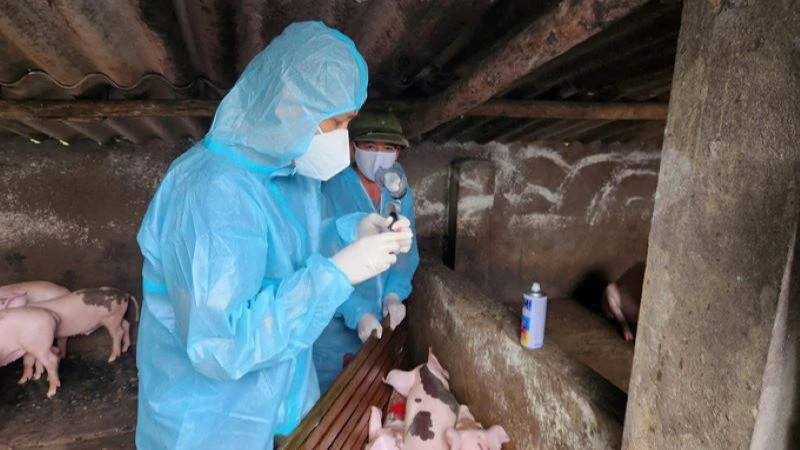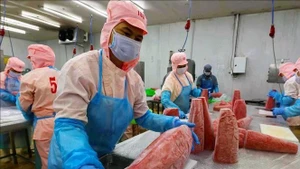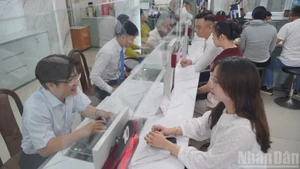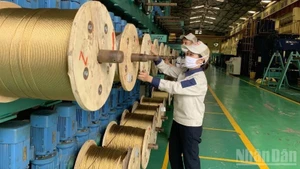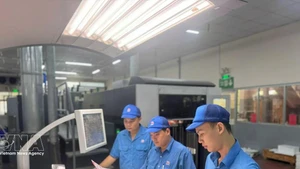Vietnam is proactive in researching and producing vaccines for animals
Sharing at the recently held forum on application of new advances in the field of veterinary vaccines in Vietnam, Le Toan Thang, Head of the Department of Veterinary Medicine Management under the Department of Animal Health, informed that Vietnam currently has 92 veterinary medicine production facilities that meet GMP-WHO.
Of which, 12 veterinary vaccine production facilities; investment level is about 30-40 million USD/factory. The laboratories of the Department of Animal Health have achieved biosafety level II or higher, including 2 biosafety level III laboratories; the veterinary sector has 7 biosafety level III laboratories.
According to Thang, Vietnam’s veterinary vaccine research and production units are constantly strengthening international cooperation, transferring science and technology with the world’s leading countries such as the US, EU, Japan, Australia, the Republic of Korea, China, Americas... with the most advanced technologies.
Currently, the whole country has 12 enterprises researching and producing animal vaccines that meet GMP-WHO standards with a total of 218 types of vaccines and 340 types of imported vaccines, meeting the needs of disease prevention in livestock and poultry in the country.
Regarding the production and import situation of some important vaccines in 2024: avian influenza vaccine 739 million doses; Foot-and-mouth disease vaccine over 46 million doses; rabies vaccine over 5 million doses; PRRS vaccine over 34 million doses (3.5 million doses produced; 31 million doses imported); lumpy skin disease vaccine nearly 2 million doses. As for African swine fever vaccine, to date, enterprises have produced and supplied 5.9 million doses to the market.
Regarding the results of the State inspection of imported veterinary vaccines: in 2024, 714 vaccine samples were tested, 100% of the tested vaccine samples met the requirements for quality, safety, and effectiveness.
Nguyen Dang Dai from the Department of Animal Health under the Department of Agriculture and Rural Development of Hung Yen province, said that Hung Yen was the first place to detect African swine fever. In the process of preventing and fighting the epidemic, the province has combined many measures to suppress the epidemic.
Currently, Hung Yen applies 8 types of vaccines to prevent and fight the epidemic, divided into 2 phases in a year, over a total period of 6 months. “With the types of vaccines that are bid, using vaccines is very good,” Dai shared.
In addition to African swine fever, other diseases such as anthrax, lumpy skin disease, avian influenza, ... Hung Yen has effectively controlled and prevented. Even the small outbreaks that have appeared recently, the locality has promptly detected to prevent and suppress the outbreaks.
Strengthening close cooperation in disease control work
Nguyen Van Long, Director of the Department of Animal Health under the Ministry of Agriculture and Rural Development said currently, African swine fever and diseases in cattle and buffaloes are basically under control. However, diseases in livestock, poultry and wild animals are still increasing every day.
“Vietnam has a long border and increasing trade and travel between countries, creating favourable conditions for new diseases, including new strains of avian influenza, African swine fever and lumpy skin disease, to spread rapidly,” Long shared.
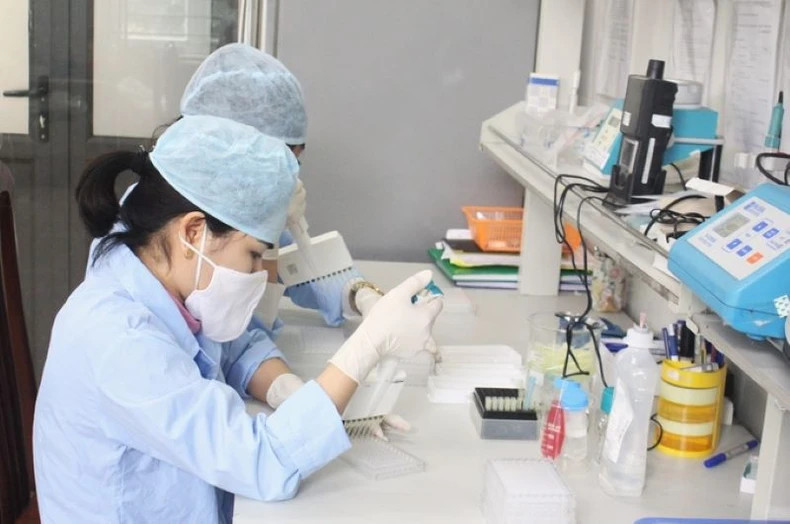 |
| In 2024, 714 vaccine samples were tested, 100% of the tested vaccine samples met the requirements for quality, safety, and effectiveness. |
Updating on the disease situation and vaccination work, Nguyen Van Long said that this year there have been 16 outbreaks of avian influenza, a decrease of 30% compared to last year. However, vaccination work is still facing many difficulties and has not met requirements.
Regarding rabies, Vietnam has recorded 887 deaths from rabies in the past 10 years, in the first three months of this year alone, 27 people died from rabies, 100,000 people were bitten by dogs and had to receive preventive treatment. In 2023 alone, economic losses caused by rabies have reached nearly 1 trillion VND. The main reason is poor dog management and rabies control. The current rabies vaccination rate is only 60%.
Foot-and-mouth disease, one of the most dangerous diseases for livestock farming, is on the rise. The current epidemic situation has tripled compared to before.
Lumpy skin disease in livestock has not met the vaccination requirements, reaching only 47% since the beginning of the year. Meanwhile, blue ear disease in pigs has been controlled for many years, but the number of vaccines is still limited, causing concerns for disease prevention and control in pig farming.
Affirming the strong development of vaccine technology in the world creates opportunities for Vietnam to learn and cooperate. The Director of the Department of Animal Health said that there has been significant development in scientific and technological cooperation and Vietnam’s vaccine production technology has reached world level.
The Director of the Department of Animal Health recommended that the departments of animal husbandry, veterinary medicine, aquaculture and related enterprises need to cooperate closely in disease control, especially dangerous infectious diseases. He also affirmed that the use of vaccines is extremely important and necessary in disease control.
Nguyen Thi Thanh Thuy, Director of the Department of Science, Technology and Environment under the Ministry of Agriculture and Rural Development affirmed that in the context of many disease variants as present, disease control in barns and livestock herds must be carried out strictly and strictly protected.
Vaccines are an effective measure in minimising damage, helping output products meet disease safety and food safety standards. Using vaccines not only helps reduce infectious diseases but also ensures safe livestock farming processes.
According to Thuy, Vietnam has successfully produced and officially exported the AVAC ASF LIVE African swine fever vaccine of AVAC Vietnam Joint Stock Company to five countries, marking a great achievement recognised by the world.
“In the coming time, with the achievements and marks recognised by the world, Vietnam has great potential to continue to develop and create new vaccines, meeting the needs of protecting the health of livestock and consumers. With the trend of socialising resources and the strong participation of businesses, the Vietnamese veterinary and livestock industry is ready to apply advanced technologies and develop modern vaccines,” Thuy affirmed.
